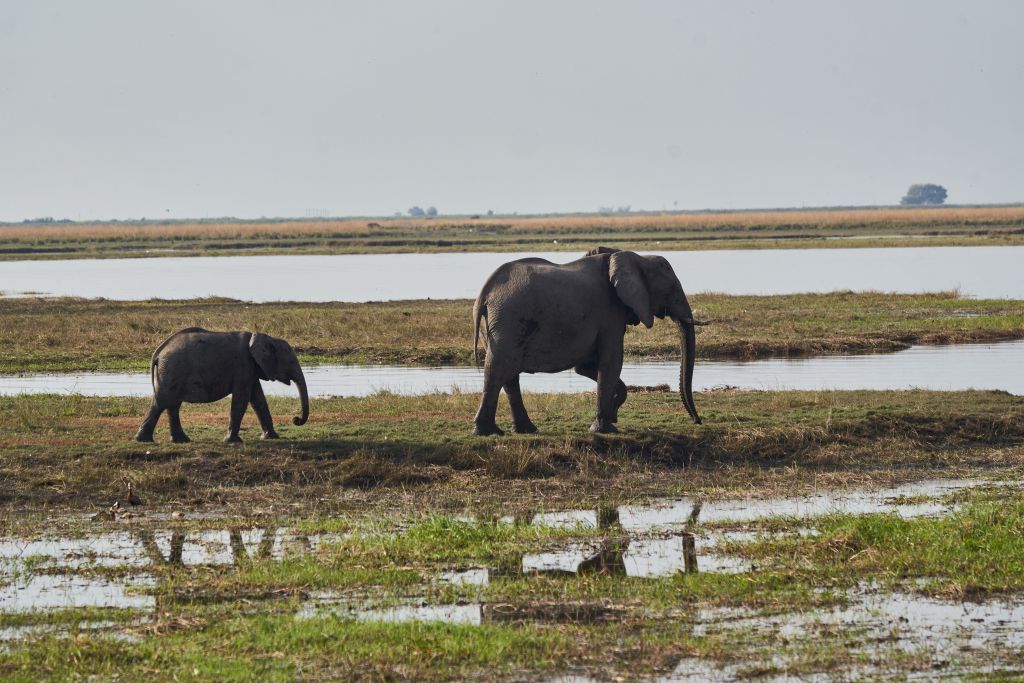Botswana Breaks Ground on Forensic Laboratory to Combat Wildlife Crime
ADF STAFF
A forensic laboratory in northern Botswana will play a vital role in the effort to disrupt the illegal trade in wildlife, according to the lab’s supporters.
“The forensic laboratory will scientifically investigate and prosecute wildlife trafficking crimes through interagency law enforcement support, and this will entail collection, storage and analysis of evidence,” Botswanan President Mokgweetsi Masisi said as he recently broke ground for the facility along with U.S. Ambassador to Botswana Howard Van Vranken.
The laboratory is supported by a $2.7 million grant from the U.S. State Department’s Bureau of International Narcotics and Law Enforcement Affairs. Researchers at Kasane will work with wildlife experts at Virginia Tech university in the U.S. and the nongovernmental organization (NGO) the Centre for African Resources, Animals, Communities and Land Use (CARACAL) based at the nearby Chobe National Park.
“Botswana is becoming a wildlife haven, and, therefore, a target for traffickers,” CARACAL founder Kathleen Alexander told ADF in an interview. Alexander is a wildlife veterinarian and Virginia Tech professor who has spent more than 30 years working with the government of Botswana to protect its wildlife.
The Kasane laboratory is scheduled to open in mid-2024. Once operational, it will strengthen the ability of Botswana and its neighbors to prosecute wildlife crimes, Alexander said.
“It’s important to develop faster and more effective measures to counter wildlife trafficking,” she added.
After declining during the COVID-19 pandemic, wildlife trafficking across Africa is rebounding, driven largely by the demand in China for ivory, rhino horn, pangolin scales and other wildlife components.
Wildlife trafficking thrives on corruption, illicit financial flows and money laundering — factors that have made it a major market for criminal organizations in Asia and elsewhere. Illicit materials often are packed with legitimate cargo to be smuggled by sea to Asian receivers.
Illicit shipments are growing in size. Earlier this year, Vietnamese authorities seized almost 7,000 kilograms of elephant tusks at the port of Haiphong.
“It’s a very alarming trend to observe — that such a large quantity of ivory is being trafficked in one shipment,” Ellen Tyra, a wildlife crimes expert at U.S.-based C4ADS, recently told Mongabay.
It is crucial that wildlife crime investigations also consider the organized crime aspect, according to the Wildlife Justice Commission (WJC).
“Intelligence analysis is an essential tool in this regard,” WJC researchers wrote in a recent report. “Wildlife crime is a cross-cutting criminal activity which cannot be tackled in isolation from other crimes.”
Over the past decade, Botswana and its neighbors have been linked to more than 1,000 cases of trafficked wildlife parts, according to C4ADS.
Kasane is less than 100 kilometers from Victoria Falls, Zimbabwe, where seven Chinese nationals were charged with possessing $1 million in illegal rhino horn in 2019. While free on bail, the seven men later escaped with the help of a Zimbabwean police officer they bribed to drive them to Maputo, Mozambique.
Successfully fighting wildlife crime requires international cooperation, Masisi said. The location of the lab in Kasane puts the Botswana-based researchers within easy reach of colleagues in Angola, Namibia, Zambia and Zimbabwe.
Recent advancements have enabled forensic researchers to pinpoint the geographic origin of some trafficked animal parts. That makes laboratories such as the one in Kasane vital to investigating wildlife crimes and breaking up the criminal organizations behind them.
“The unyielding threats to our wildlife and their habitat call for innovative and proactive measures,” Masisi said during the groundbreaking. “This facility will therefore become a critical hub in our collective efforts to protect the precious natural resources bequeathed to us.”


Comments are closed.